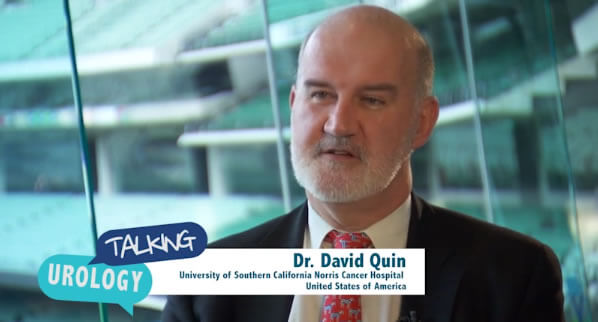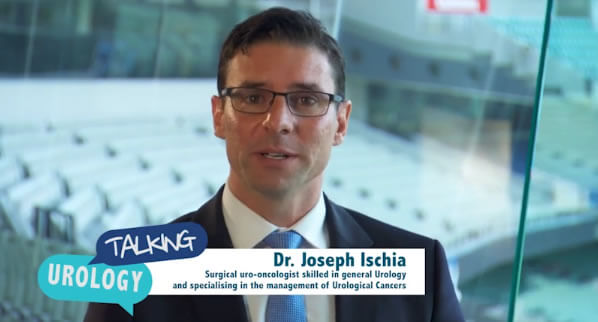USANZ 2017 – Dr James Eastham
James A. Eastham, MD, is Professor and Chief of the Urology Service, Department of Surgery, Memorial Sloan- Kettering Cancer Center in New York.
Dr James Eastham discusses neoadjuvant & adjuvant treatments for radical prostatectomy.
Talking Urology podcast transcript
USANZ 2017 Interviews – James Eastham
This is Talking Urology.
Joseph Ischia: I’m Talking Urology with James Eastham who is the Chief of Urology at Memorial Sloan Kettering, and we’re going to talk about his talk today which was a neoadjuvant and adjuvant treatment in high-risk prostate cancer. What were the take-home messages, Jim?
Dr. James Eastham: From the standpoint of clinically localized high-risk prostate cancer, the standards of care are either radiation plus hormones or surgery. Those are both accepted treatment strategies and should be in the conversation of any man that’s discussing his options for care in that setting.
Joseph: Excellent, and have we had any success so far?
James: Certainly in the radiotherapy world, standard of care is a combination of radiation plus hormones. There are some issues with what’s the appropriate dose of radiation therapy, what’s the duration of hormonal therapy but fairly standard in the radiation oncology world that combination therapy is beneficial compared to either strategy alone, either radiation alone or hormones alone.
Joseph: Have we had any luck with neoadjuvant treatment and radical prostatectomy so far?
James: So far, no. We’ve primarily looked at relatively short courses, three to eight months, of neoadjuvant standard hormonal therapy and LHRH agonists typically before radical prostatectomy. While there were some histologic benefits there were no longer term benefits in terms of meaningful outcomes like biochemical recurrence or clinical progression. So, radical prostatectomy, as a standalone procedure, is considered standard of care for clinically localized high-risk disease.
Joseph: And what study we got running at the moment that you hope might show a difference?
James: So, there’s a couple of studies that are ongoing. So there is a completely accrued neoadjuvant chemotherapy trial looking at docetaxel plus radical prostatectomy versus radical prostatectomy alone. That study hopefully will report out at least a biochemical endpoint in the next year or so, and there are also what I think are very important studies comparing adjuvant to salvage radiation therapy in patients with higher risk pathologic features really to determine whether adjuvant truly is better than waiting until the patient shows at least signs of biochemical recurrence and then instituting radiation therapy at that time.
Joseph: And how about in the field of precision medicine, what’s coming?
James: Right, I think we do a much better job at this point in identifying particular genetic abnormalities. The difficulty is finding treatments that specifically target that genetic abnormality, one at least small step is in the DNA mismatch repair arena in which at least, in metastatic prostate cancer, about 12% to 15% of patients actually are found to have a germline defect that has this DNA mismatch repair abnormality. And the advantage of that is we do have a drug for it, what’s called a PARP inhibitor, and patients in the metastatic setting with the DNA mismatch repair identified who were treated with a PARP inhibitor had excellent response rates about 85% to 90% of the patients at least had a response.
Joseph: And that’s in the BRCA2 positive.
James: That’s basically BRCA1, BRCA2. That makes up about 50% of the DNA mismatch repair patients. In the localized but high risk, it’s going to be less than 10% likely. But for that small subset of patients, they’re likely to show a benefit as well and perhaps neoadjuvant strategies in that population of selected patients will aid in precision medicine as you mentioned.
Joseph: Thank you very much James. It’s an absolute pleasure. Thanks a lot.
James: Oh, my pleasure. Thank you.










